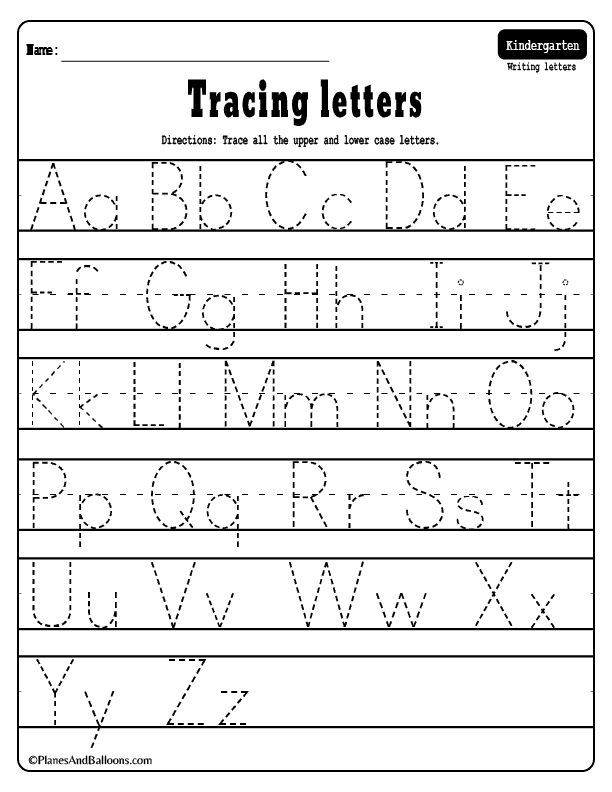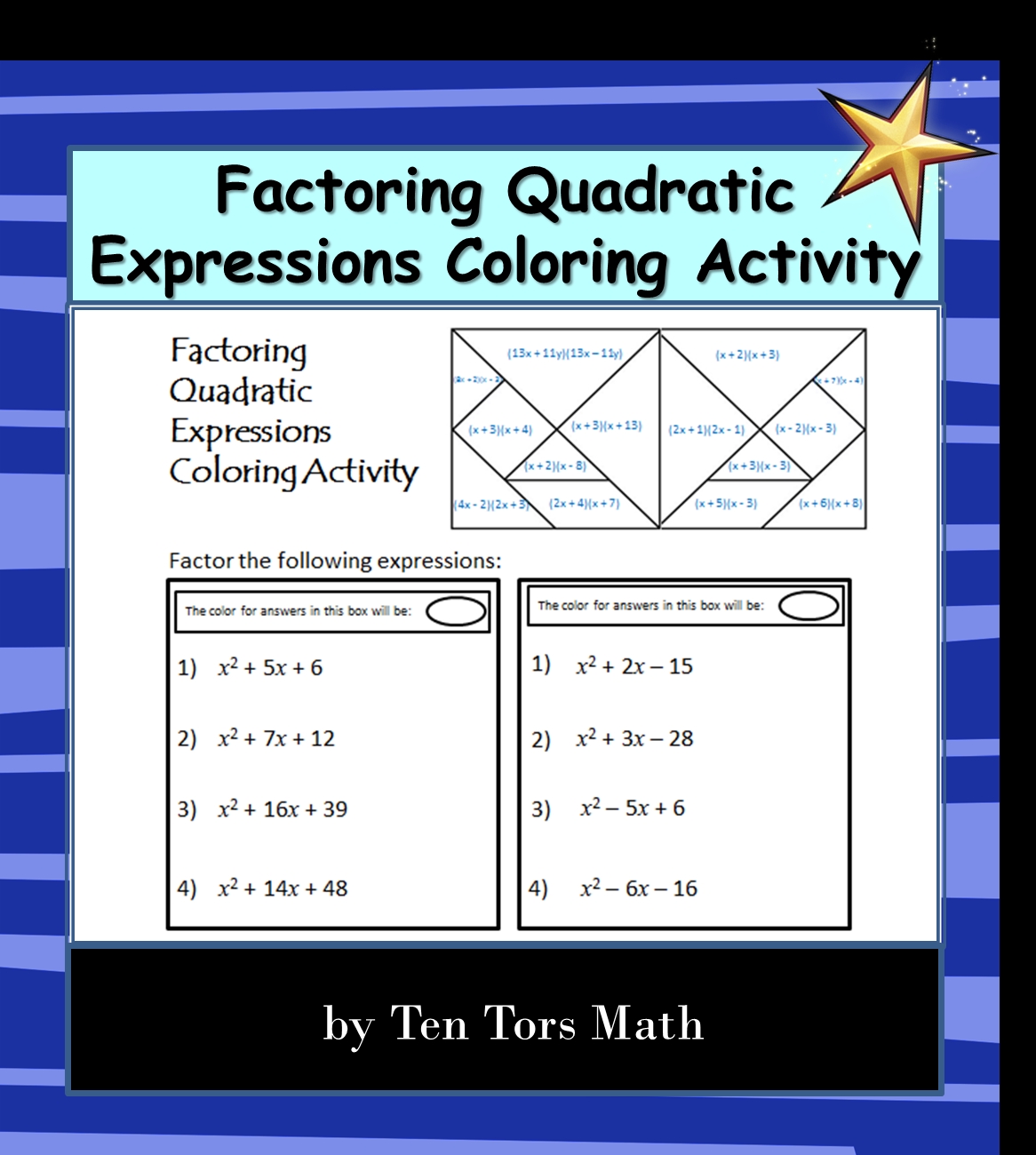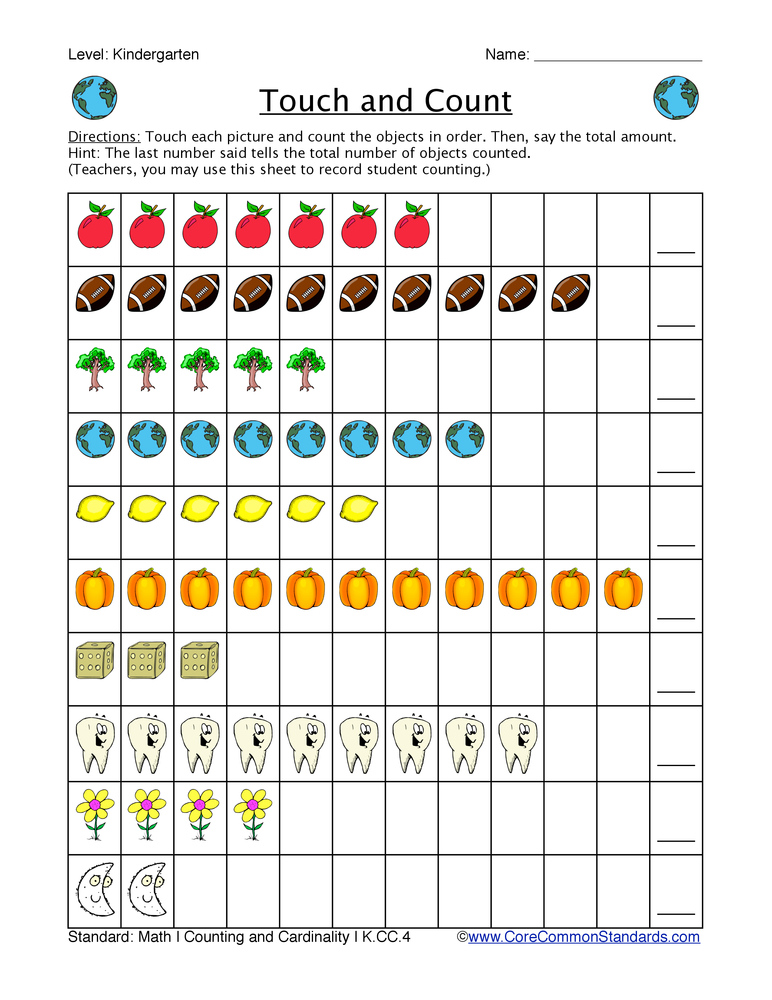Anger Triggers Worksheet: Manage Your Emotions Effectively
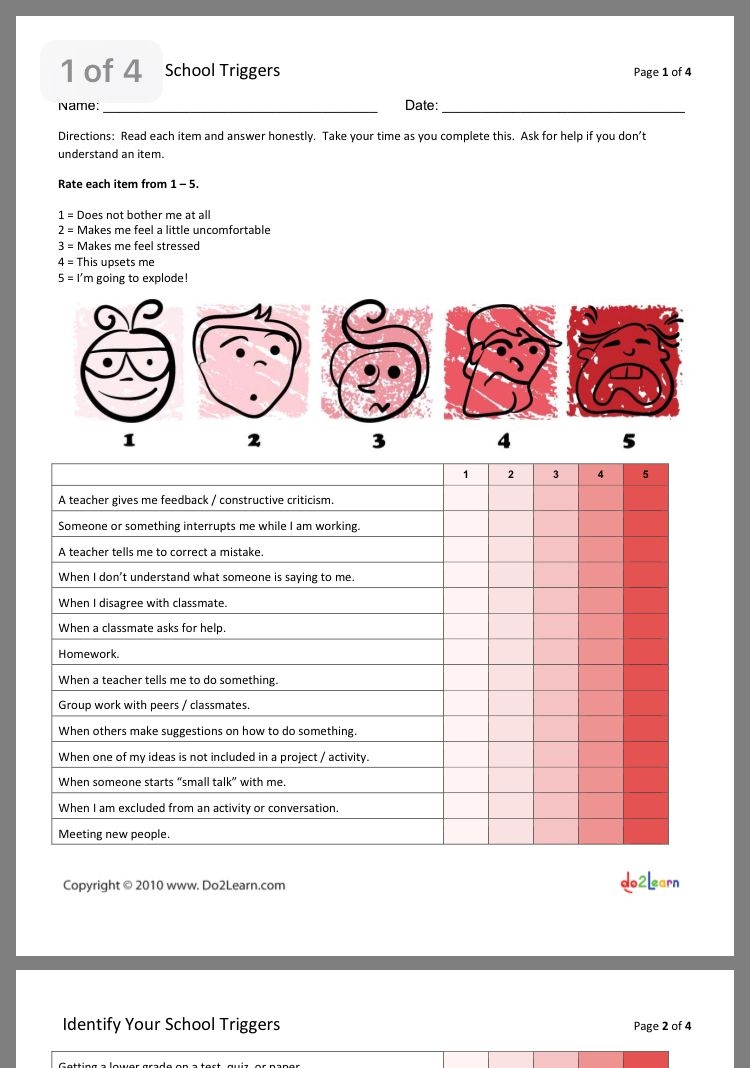
Understanding Anger Triggers: A Key to Emotional Management
Anger is a natural human emotion that can arise from various situations, interactions, or even thoughts. However, when left unchecked, it can lead to conflicts, damage relationships, and impair overall well-being. One effective way to manage anger is by identifying and understanding personal anger triggers. This worksheet is designed to help individuals recognize, analyze, and develop strategies to cope with their unique anger triggers.
What are Anger Triggers?
Anger triggers are specific situations, events, or stimuli that can provoke an intense emotional response, often leading to anger. These triggers can be external, such as a confrontational conversation or a frustrating traffic jam, or internal, like a personal memory or a specific thought pattern.
Common Types of Anger Triggers:
- Environmental Triggers: Crowded spaces, noise pollution, or uncomfortable temperatures.
- Social Triggers: Interactions with specific individuals, being criticized or judged, or feeling ignored.
- Personal Triggers: Memories of past traumas, feelings of frustration or helplessness, or specific thoughts and beliefs.
Identifying Your Anger Triggers:
To effectively manage anger, it’s essential to understand what triggers it in the first place. Take a few moments to reflect on the following questions:
- What situations, events, or interactions tend to make me angry?
- Are there specific individuals who trigger my anger?
- Are there any memories or thoughts that contribute to my anger?
- Are there any physical sensations or environmental factors that make me feel angry?
Write down your answers in the space provided below:
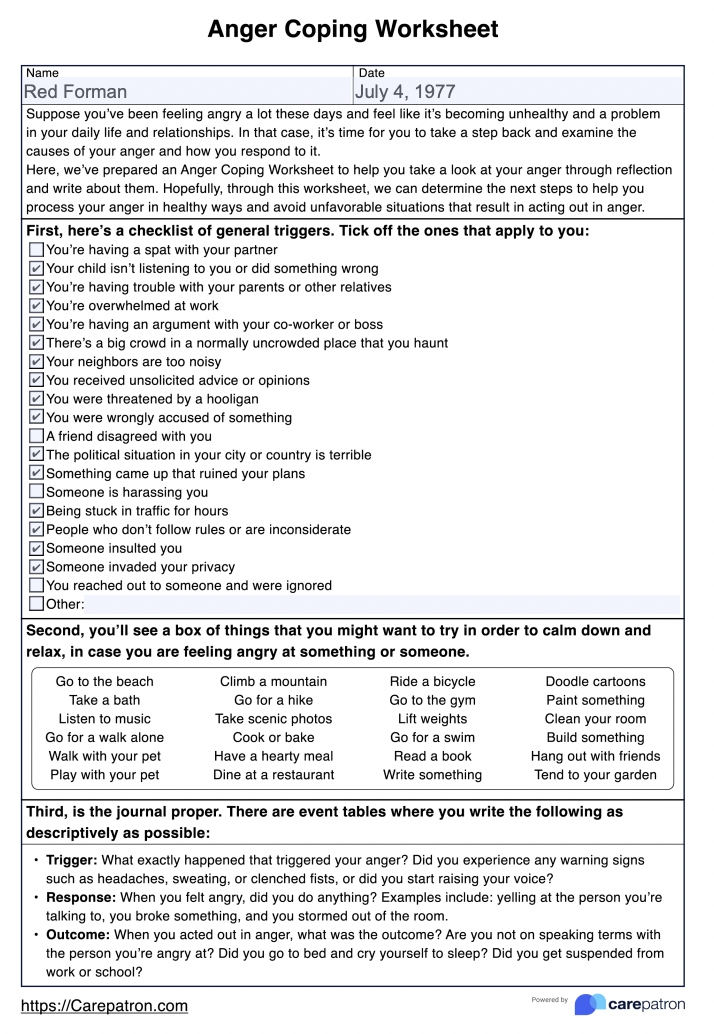
| Trigger Type | Description |
|---|---|
| Environmental Trigger | _____________________________________________________ |
| Social Trigger | _____________________________________________________ |
| Personal Trigger | _____________________________________________________ |
Analyzing Your Anger Triggers:
Now that you’ve identified your anger triggers, take a closer look at each one. Ask yourself:
- What is it about this trigger that makes me angry?
- Is there a specific thought or belief associated with this trigger?
- Are there any past experiences or memories linked to this trigger?
- How do I typically react when confronted with this trigger?
Use the following table to help you analyze your anger triggers:
| Trigger | Thoughts and Beliefs | Past Experiences | Typical Reaction |
|---|---|---|---|
| _____________________________________________________ | _____________________________________________________ | _____________________________________________________ | _____________________________________________________ |
| _____________________________________________________ | _____________________________________________________ | _____________________________________________________ | _____________________________________________________ |
Developing Strategies to Cope with Anger Triggers:
Now that you’ve identified and analyzed your anger triggers, it’s time to develop strategies to cope with them. Consider the following:
- Relaxation Techniques: Deep breathing, progressive muscle relaxation, or visualization can help calm you down.
- Communication Skills: Practice assertive communication to express your feelings and needs effectively.
- Problem-Solving: Identify solutions to problems that trigger your anger.
- Self-Care: Engage in activities that promote relaxation and stress reduction, such as exercise or meditation.
Write down your strategies for each trigger:
| Trigger | Strategy |
|---|---|
| _____________________________________________________ | _____________________________________________________ |
| _____________________________________________________ | _____________________________________________________ |
💡 Note: Remember that managing anger is a process that takes time and practice. Be patient and compassionate with yourself as you work through this worksheet.
In the next section, we’ll discuss some additional tips for managing anger and maintaining emotional well-being.
Maintaining Emotional Well-being:
In addition to identifying and coping with anger triggers, it’s essential to prioritize emotional well-being. Here are some tips to help you maintain a healthy emotional state:
- Practice Self-Awareness: Regularly check-in with yourself to recognize and understand your emotions.
- Engage in Physical Activity: Exercise can help reduce stress and anxiety.
- Connect with Others: Build and maintain a support network of friends, family, or a therapist.
- Practice Mindfulness: Focus on the present moment to reduce worries about the past or future.
By following these tips and working through this worksheet, you’ll be better equipped to manage your anger and maintain emotional well-being.
What are some common signs of anger triggers?
+Common signs of anger triggers include increased heart rate, sweating, tense muscles, and a raised voice.
How can I manage anger triggers in the moment?
+Try taking a few deep breaths, stepping away from the situation, or engaging in a relaxation technique to calm down.
Can I use this worksheet with a therapist or counselor?
+Absolutely! This worksheet can be a valuable tool to use in conjunction with therapy or counseling to help you work through your anger triggers and develop effective coping strategies.
By working through this anger triggers worksheet, you’ve taken the first step towards managing your anger and maintaining emotional well-being. Remember to be patient and compassionate with yourself throughout this process, and don’t hesitate to seek additional support if needed.

